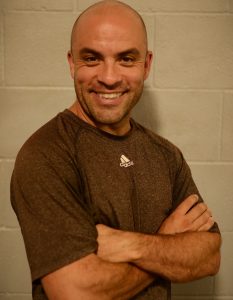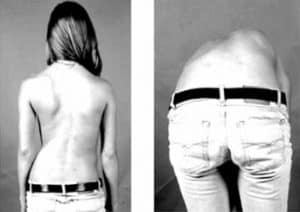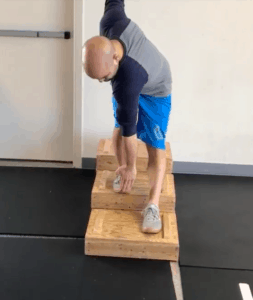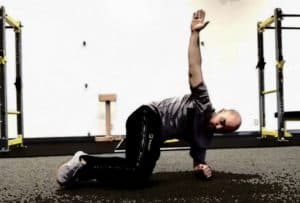 1. How would you define your personal practice?
1. How would you define your personal practice?
A.) Resilient Human Performance (RHP) is a training program designed to focus on a hierarchy of 3 training factors:
#1) Maximize quality of postural position (through Postural Restoration Institute[PRI] prinicipals)
#2) Maximize movement quality (through Functional Movement Systems[FMS] and Strong First principals)
#3) Maximize strength and endurance qualities (through 5-3-1 and Strong First principals)
2. What turning points have you encountered on your movement journey?
A.) The turning points that occurred for me that were the most significant come from the brilliant men and women that I base the principals of my program on. Of all of the ah-ha moments, it was my discovery of PRI that sticks out in my mind the most. When I discovered PRI I found that it’s principals were strikingly different than what everyone else seemed to be saying about movement dysfunction. On top of that, the techniques I was using were producing profound effects on the overall movement quality and pain levels of my clientele. The principals of PRI also had a surprising effect on the cuing and exercise selection used in the weight room as well which, honestly, probably makes the biggest difference in a client’s movement quality, especially the younger generations.
3. What role has injury played in cultivating your current niche?
A.) I have been plagued by injury throughout my life. Knee, back, and shoulder injuries peppered my high school, college, and active duty Navy life. Core Performance by Mark Verstegen(2005) completely changed the way I thought about training the human body. If I were to point at one influence that was THE reason I became a trainer it was that book. I had never heard someone say that you could prevent injury with certain training techniques. I was drawn to that idea and have been pursuing that goal since that moment.
4. Do you consider yourself a teacher? Why or why not?
A.) Absolutely. I run an internship through my program that is extremely rewarding for me and the students that come through. I had some amazing internship experiences in my time and some that were not so good. The less-rewarding ones taught me a lot about what I wanted out of that kind of a hands-on learning experience and has really shaped the internship I offer at RHP.
5. What has been your experience with physical education, both in the schooling system and sought out knowledge/ know-how elsewhere?
A.) The structured nature of physical education within the school system does an adequate job of teaching students the importance of physical activity, the positive effects of exercise, and the basic elements needed to understand the human body. However, I do not think most programs out there do a great job of teaching the basics of human movement and establishing adequate movement competency to ensure their success in physical activity. It is in the private sector, grinding away at the computer and in the books that I found this knowledge. Knowledge of what movement quality is, how to get it, maintain it, and progress it.
6. How do you involve your mind/ emotions into your physical routines?
A.) My training sessions focus on strength a majority of the time. I use primitive movement patterns and postural restoration work to try to create as much balance as I can surrounding a joint, but by and large it is all about getting stronger.
7. What are your personal aspirations regarding movement? How do you hope to find purpose and use in the skills you have built?
A.) Someone once asked me how long I expected to be a trainer(insinuating that training was hard on my body). I replied with, “the rest of my life. My body is healthier, more pain free, and stronger because I know what I’m doing. I know how to take care of myself and have a better idea of what I need if I get hurt than most of the doctors out there.” I don’t say this to toot my horn, only to say that it is my hope that my movement
journey keeps me in a healthy place for the remainder of my life.
8. How can people find/ contact you? Do you have a site or social media handle to share?
Facebook@resilienthumanperformance
Instagram@resilient_H_P
Email: [email protected]
Aaron’s Recent Blog Posts



